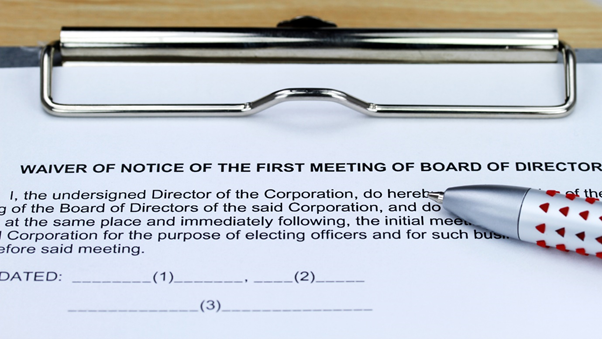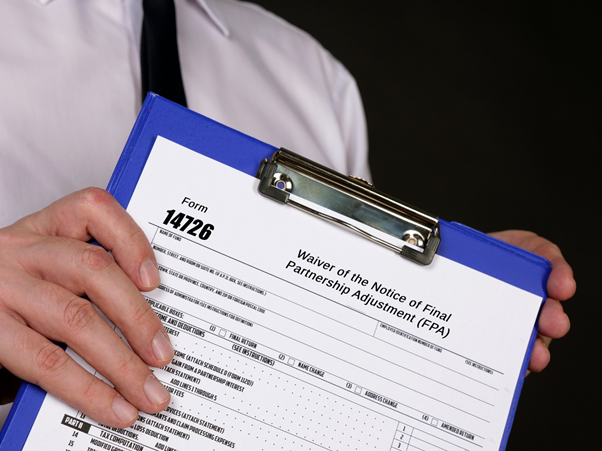What is waiver of notice?
A waiver of notice is a written document that expressly waives a legal right to formal notice. These documents could be helpful in many situations.
Significantly, this waiver would not affect any rights other than the right to notice; signing this document does not imply that anybody waives their interest in the particular subject. It also does not imply that the signatory would no longer get updates on legal proceedings.
This document might be used in the process of probating a will, for instance. Individuals interested in the will could sign a waiver of notice, which states that they waive their right to be notified about judicial proceedings concerning the will. That implies that if they want to attend, they must first approach the executor to figure out when the events will take place so that they can turn up. However, their other legal rights to the will remain unaffected.
For all interested parties, a waiver of notice could save a lot of time. But, most significantly, a waiver of notice must clarify that the individual's right to receive information is unaffected. Instead, it simply means that they can be kept out of advance notices about specific iterative steps in the probate procedure.
Whenever anyone is requested to sign a waiver, it is critical to read the document carefully to ensure no surprises. Before signing, any clauses that are objectionable or unclear must be addressed. A lawyer can be approached for additional information if the reason for signing a document is unclear. The waiver of notice is deemed executed as soon as it is signed, and the signatory has relinquished the legal right to notification.
Summary
- A waiver of notice is a document that expressly waives a legal right to formal notice.
- Individuals interested in the will could sign a waiver of notice, which states that they waive their right to be notified about judicial proceedings concerning the will.
- A waiver of notice must make it clear that the individual's right to receive information is unaffected.
Frequently Asked Questions (FAQs)
What are the corporate purposes of waiver of notice?

Sources: © Keithfrithkeith | Megapixl.com
Waivers of notice are not restricted to the proceedings of probating a will. For example, if a board needs to call an emergency meeting, a waiver of notice can be used. Under the regular practice, those interested would be informed, often in writing and sent by courier. However, this condition is only waived for the duration of that meeting when a waiver is signed, allowing it to commence.
The notice permits the corporate board of directors or other governing organisations to call an urgent meeting even if all board members cannot attend at the last minute.
Most significantly, a notice ensures that the proceedings of a meeting held without notice would be deemed legally valid if questioned later. In such cases, corporate lawyers advise that all directors sign a waiver of notice for any future meetings as well as a waiver of notice before the meeting.
In addition, when a professional relationship ends, both employees and employers have the choice of foregoing their right to notice.
Waiving contractual notice
At any moment, an employer might forgo his or her right to a contractual notice. Therefore, the employer must carefully document any waiver of the right to notice, as follows:
- Later, there could be a disagreement about whether the waiver was willingly given.
- It could have an impact on the effective date of job termination.
In addition, workers may also be able to forgo their rights to payments in place of notice, even though doing so is rarely in their best interests, such as when a lucrative voluntary redundancy package enables employees to give up their right to notice.
On the other hand, based on the terms of the clause, the employer may be permitted to give notice and then make the payment in lieu of notice. Bring the contract to an immediate conclusion before the notice term expires and make payments in lieu of the remaining notice period.
Waiving statutory notice
A worker or an employer will also be entitled to forgo their statutory notice rights. However, rather than the reluctant acceptance of short notice, the waiver must be freely given and the outcome of a meaningful agreement between the parties.

Source: © Rummess | Megapixl.com
What are the consequences of issuing waiver of notice?
A waiver of notice carries the danger of an interested party missing out on a significant legal proceeding.
Because probate processes deal with delicate subjects like wills and trusts, providing appropriate notice to interested parties is a must. A waiver of notice in a probate proceeding often agrees to designate an administrator and forgoes the right to obtain notice of the court hearing.
A waiver of notice, on the other hand, speeds up probate court proceedings. It saves money and time in legal proceedings that might otherwise result in higher legal expenses and longer wait times for heirs.
In a probate proceeding, a waiver of notice will pave the way for the estate to be reviewed without any formal hearings or discussions about replacing a designated executor. But, if you sign a waiver, you will no longer be in a legal position to question how the estate was split among heirs or the validity of a will.
The waiver of notice of settlement is another sort of waiver commonly used in probate court procedures. The responsibility to obtain a notice of settlement proceedings is waived under this waiver. This, therefore, has no bearing on the legality of any judicial settlement.
What is the example of waiver of notice?
Assume that William, the family patriarch, dies and that his property is to be allocated among his five children: James, Jacob, Sally, Olivia, and Emma, who are his only heirs.
In most cases, the probate court is required to issue a public notice about the proceedings connected to William's will probate. However, suppose all five children have a strong financial interest in William's assets. In that case, they must agree to the waivers of notice and designate an executor or administrator to represent them in court proceedings.
By designating representatives on their behalf, courts may speed up the probate proceedings, benefiting William's heirs by enabling them to obtain their inheritances quicker.
 Please wait processing your request...
Please wait processing your request...